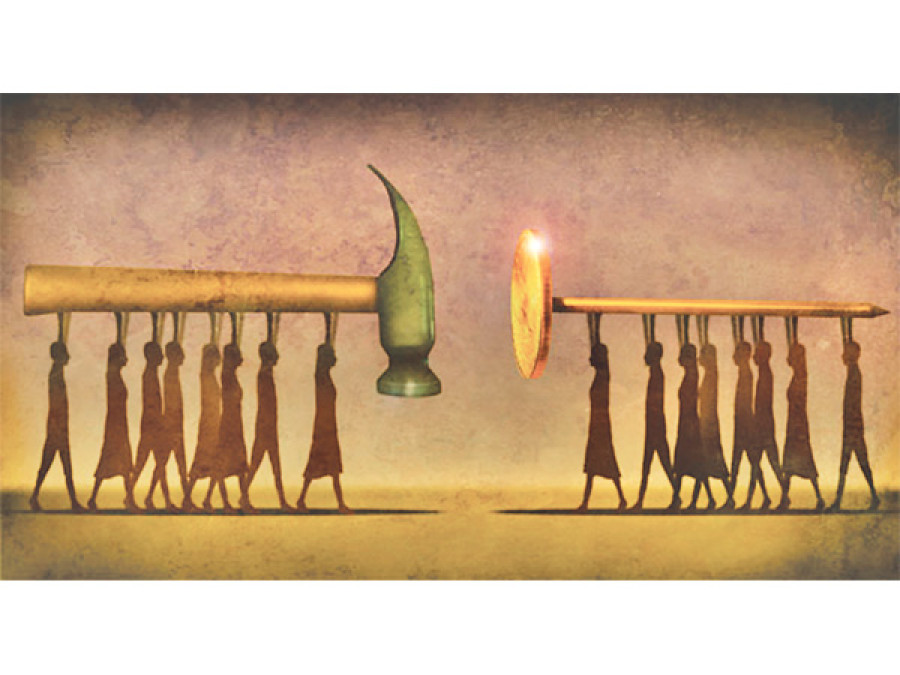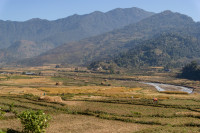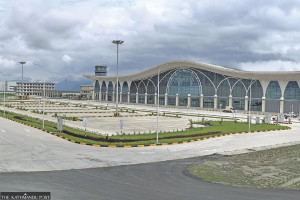Opinion
A new deal
The earthquake was secondary to the parties’ realisation that their political careers depended on an agreement on a new constitution
Kamal Dev Bhattarai
The UCPN (Maoist) factor
After the Constituent Assembly (CA) formed a Questionnaire Committee on January 25, the UCPN (Maoist)-led 30-party alliance had decided to boycott the CA process and launched a street movement. The alliance held a mass rally on February 28 to show its strength, attracting a sizeable mass in the Kathmandu Valley after a long hiatus. But turnout was low in various other protests held in Kathmandu, instead attracting much criticism from supporters and well-wishers. Thus, UCPN (Maoist) Chairman Pushpa Kamal Dahal was forced to withdraw a planned indefinite strike.
Though Dahal had made an alliance with five other breakaway Maoist parties, the hostile reaction to the protest led him to realise that the people wanted a constitution and had had enough of street movements. He gradually came to believe that the UCPN (Maoist)’s political space would be even more limited if they were ousted from the street while abstaining from the CA. He also feared that his party could meet the fate of the Mohan Baidya-led CPN-Maoist, which has almost faded from relevancy. All of this led Dahal to intensify informal negotiations with the leaders of the ruling coalition, including Prime Minister Sushil Koirala, expressing his willingness to strike an agreement by postponing a few key issues.
Before the April 25 earthquake struck the country, Dahal had almost agreed to form a commission to settle disputed issues, a previous sticking point that led to the missing of the January 22 deadline. Even though members of the 30-party alliance were against Dahal’s proposal, the combined strength of Dahal, Baburam Bhattarai and Narayan Kaji Shrestha managed to sell the idea that the party should strike a deal.
The UCPN (Maoist) leadership began to urge the NC and UML to increase the number of provinces and when the ruling coalition finally consented, Dahal concluded that it was time to strike a deal. He seemed to have taken lessons from the agreement forged among parties on May 15, 2012, which had agreed on 11 provinces and a mixed governance model. This agreement was not implemented, as Dahal backtracked and sided with a few Madhes-based and ethnic parties. But in the second CA, relegated to third position, Dahal must’ve realised the folly of failing to sign an agreement when the ruling coalition had agreed to eight provinces. The Maoist leadership thus concluded that it would be better to postpone some issues concerning federalism, instead of compromising with the ruling parties.
Koirala’s interests
PM Koirala ascended to power in February 2014 with a commitment to deliver a new constitution within a year. But it was obvious from the very beginning that he was more rigid on the number of provinces. Before and after becoming prime minister, he stuck to the position that the country could not sustain more than five or six provinces and that he was in favour of a north-south division of federal provinces.
Koirala failed to deliver a new constitution by January 22, his one-year deadline, inviting criticism and moral pressure to either quit government or strike a deal on constitution. But it is clear that Koirala will resign as PM only after the promulgation of a new constitution, which would be the culmination of his six-decade-long political career.
Koirala agreed to eight provinces because he was not willing to give up the historic opportunity of promulgating a new constitution under his leadership. Another major concern for the NC was the delineation of federal provinces. As the Maoist party was ready to form a commission to finalise demarcation, the NC felt more comfortable agreeing. On form of government, the NC achieved a victory because there was agreement on the continuation of the Westminster parliamentary system, advocated for by the NC. Koirala’s efforts to incorporate pluralism in the agreement, however, failed.
KP Oli the spoiler
For a long time, KP Oli has been a vocal critic of the Maoist party. A cordial relationship hasn’t existed between Oli and the UCPN (Maoist) since 2006. When Oli became chairman of the UML, this relationship soured further. Due to his rigid position and severe language, the UCPN (Maoist) came
to consider Oli a ‘spoiler’ for agreement on the constitution. Before the April 25 earthquake, Oli was determined to promulgate a new constitution through a two-third majority vote, bypassing the UCPN (Maoist) and Madhes-based parties.
At the same time, he was keen on becoming prime minster. Though he made efforts to remove Koirala, this was not an easy task and he failed. And it was certain that the UCPN (Maoist) and Madhes-based parties would not support him for prime minister without agreement on key issues of constitution. He was also well aware that if the NC was kept outside the power circle, it would not be possible to complete the constitution-drafting process. So, he came to the conclusion that only a deal on the constitution would ensure a dignified exit for Koirala and clear the road for him, Oli, to become prime minister. After the earthquake, Oli changed his tone, arguing that all parties should remain united. He also realised that if he continued to take a rigid position on contentious issues, the people too would come to see him as a spoiler.
The neighbour effect
The geopolitical dimension of Nepali politics also cannot be disregarded here. India and China have concerns on Nepal’s model of federalism and form of government. The Indian leadership has clearly communicated that Nepal should continue with the parliamentary system. This is the reason the UCPN (Maoist) agreed to move ahead by registering a note of dissent on the parliamentary system.
Both India and China want assurance that the new federal set-up will not affect their security concerns. India and China are primarily concerned about the delineation of provinces, which has been postponed for the time being. China has openly stood against ethnic federalism and in favour of fewer provinces in Nepal’s northern belt. China has also communicated to our leaders that there should a strong central government.
Still, unlike in the past, there was little foreign influence on the terms of the 16-point agreement. The top leaders of the major parties worked to strike a deal without any external influence. A common position among Nepal’s two neighbours also made this deal much easier.
The April 25 earthquake was simply a secondary factor in forging consensus. The disaster prompted the parties to realise that the people would not excuse them if they failed to tackle the national crisis together. But the primary reason for the new deal is that the chiefs of the major parties realising that the country could not sustain any more instability, which would ultimately endanger their own political careers.
Bhattarai is with the political desk at the Post




 7.12°C Kathmandu
7.12°C Kathmandu










